Whenever you work in a science lab, you are taught never to eat or drink anything. And there is good  reason for this: During medical school I had weekly human dissection lessons. I once licked my fingers straight after one of these sessions… never would I do that again!
reason for this: During medical school I had weekly human dissection lessons. I once licked my fingers straight after one of these sessions… never would I do that again!
Oddly, artificial sweeteners, the subject of today’s blog, were all pretty much discovered by such accidents; careless scientists licking their fingers and realising the chemical they working with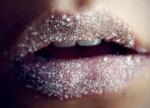 tasted sweet. Today we will be looking at these man-made chemicals that trick our taste-buds: why bother? Can they really help you lose weight? Will they kill you?
tasted sweet. Today we will be looking at these man-made chemicals that trick our taste-buds: why bother? Can they really help you lose weight? Will they kill you?
Dr Stu Investigates: Artificial Sweeteners
I’ve written this blog in response to a friend’s request. He told me that he had been experiencing odd itches and strange burning smells; his GP told him that it might be an ‘allergic response’ to artificial sweeteners.
‘Great!’ I thought, ‘I know a bit about that!’.
Since donning my investigative cap I have discovered that the safety of artificial sweeteners is one of the most controversial within the scientific community and perhaps I had bitten off more than I can chew…
Well let’s see if I can make any sense out of it:
Artificial Sweetness - What’s the point?
It will come as no surprise to you if I tell you that in the last two years sales of ‘diet’ and ‘slimming’ products have sky rocketed. Weightwatchers and Slimfast products are now selling so fast you’ll probably find them lurking in shopping trolleys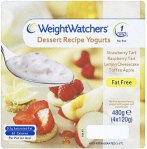 everywhere (probably next to the crisps and ready-meals). Some of the secret of their success is that often use artificial sweeteners: they taste sweet but you’re not eating the calories. Fantastic - now we can all have our cake and eat it! Same sweet taste: fewer calories. Problem solved! Or is it…?
everywhere (probably next to the crisps and ready-meals). Some of the secret of their success is that often use artificial sweeteners: they taste sweet but you’re not eating the calories. Fantastic - now we can all have our cake and eat it! Same sweet taste: fewer calories. Problem solved! Or is it…?
There must be a catch!
Well, yes it appears there is. It seems illogical, but artificial sweeteners may actually make you put on weight! An increasing amount of research is showing that eating artificial sweeteners may make you more hungry than normal. And so after your ‘diet’ food or drink, you end up eating more than you would have done!
Stop Press! More New Artificial Sweetener Facts Uncovered…
Amazingly, artificial sweeteners were recently linked to increasing numbers of single parent families…
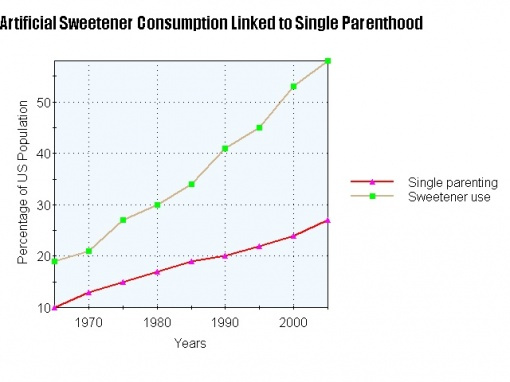 “It’s a fact: Family structure, in particular, the pernicious influence of the “non-intact” family is directly impacting society’s consumption of artificial sweetener.
“It’s a fact: Family structure, in particular, the pernicious influence of the “non-intact” family is directly impacting society’s consumption of artificial sweetener.
Just look at the statistics. Single-parent households increased by three-fold since 1965 (up from roughly 10% of households in 1965 to 27% today) and so has the use of artificial sweetener (up from roughly 19% of the population in 1965 to 58% today). Not only that, but we all know that artificial sweetener isn’t make us any thinner. In fact, its use has actually been linked to higher rates of obesity.
C’mon people, it’s staring you right in face: Watch the nice green and pink lines and the pretty dots. Single parents are making you fat. That’s right—FAT. Don’t blame anyone else. Phone Oprah. Tell her to stop beating herself up for falling off the wagon”
Don’t panic, this is just a joke article written by another blogger - there is no link between artificial sweeteners and single parenting! It’s a satire on bad science - and in an age where we are increasingly suspicious of anything synthetic in our food, artificial sweeteners have been victim to a lot of bad science.
Separating Fact from Myth
There are two main types of artificial sweeteners: I find it easiest to think of them as the side-effects they give you: Ones that give you flatulence are called ‘sugar alcohols’ and ones that don’t are called ‘nonnutritive sweeteners’. Sugar-free mints and chocolates often contain these ‘sugar alcohols’. You can’t get drunk on them though… they don’t actually have alcohol in them! They are similar to normal sugar that you put in your tea but our body can’t digest them as well (so they contain half the calories of normal sugar).
Because the body struggles with these ‘sugar alcohols’ they tend to linger in your gut and if you eat lots of them, you get cause bloating, cramps, diarhhoea and ‘gas’. So if you do some serious sugar-free polo eating (eating one packet quickly should do it) you’ll find yourself dashing to the loo. People have even been hospitalised from severe diarrhoea from eating too much sugar-free gum… You have been warned!
No thanks! So what about the others?
All the other ‘nonnutritive sweeteners’ are a rag bag of chemical curiosities: saccharin, aspartame, acesulfame potassium, sucralose, and neotame (you can find out more about them here). They’ve been tested a lot and most countries have deemed them “safe”.
The most widely used sweetener is called Aspartame. And it’s in a frightening amount of stuff what goes down our gullet: drinks, cakes, even some alcoholic drinks (some 4,000 products in the UK)!
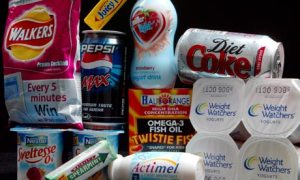
Yes that's right - even some crisps! If the back of the packet says 'contains a source of phenylalanine' - then it's there!
Try searching Google for ‘Aspartame Disease’ and you’ll find lots of scary looking sites like this one from www.aspartamekills.com! Websites claim aspartame to be the cause of multiple sclerosis, lupus erythematosis, Gulf War Syndrome, chronic fatigue syndrome, brain tumours, and diabetes mellitus and every other symptom under the sun.
Thankfully, like the single parenting issue much of it seems to be unfounded and many of these rumours have been debunked as myth. Research by the National Cancer Institute looked for a link by studying over half a million people and concluded that it was “probably safe”.
All Smoke and No Fire then?
Perhaps: most people in credible science (i.e. those people not selling books like “The Aspartame Conspiracy” or “Aspartame killed my Wife”) feel that artificial sweeteners have been tested on animals and on humans sufficiently to call them ‘safe’. As with any conspiracy theory, there’s books to sell and money to be made. And because artificial sweeteners are so ubiquitous in our modern diet, we could blame them for anything. That said I think it’s wise to exercise some caution after hearing a story from a personal friend…
All a conspiracy?
A friend and researcher into Brain Cancer told me a story of how he was researching whether aspartame (then called ‘Nutra-sweet’) caused brain tumours. He’s a clever chap who can grow things, like cancer cells in little pots in a lab. He found that aspartame made the cancer cells grow considerably faster. The story gets more interesting, when he recounts how he was repeatedly taken out for expensive meals by ‘Nutra-sweet’ employees after he had made this discovery who tried to ‘sweeten him up’ (pun intended) and encourage a more ‘favourable’ write-up of his results…
Is this an example of a large corporation trying to supress the truth? Or is it just normal public relations exercise and a well-intended way of liaising with the scientific community?
I’ll let you decide.
Extra Links:
http://www.medicinenet.com/artificial_sweeteners/article.htm - Excellent site that summarises nearly everything you could want to know about artificial sweeteners
http://hubpages.com/hub/Artificial-Sweeteners-A-History - For a brief history of artificial sweeteners



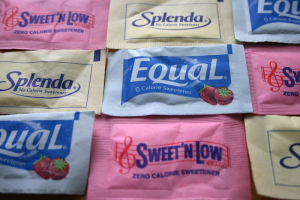
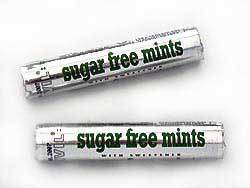


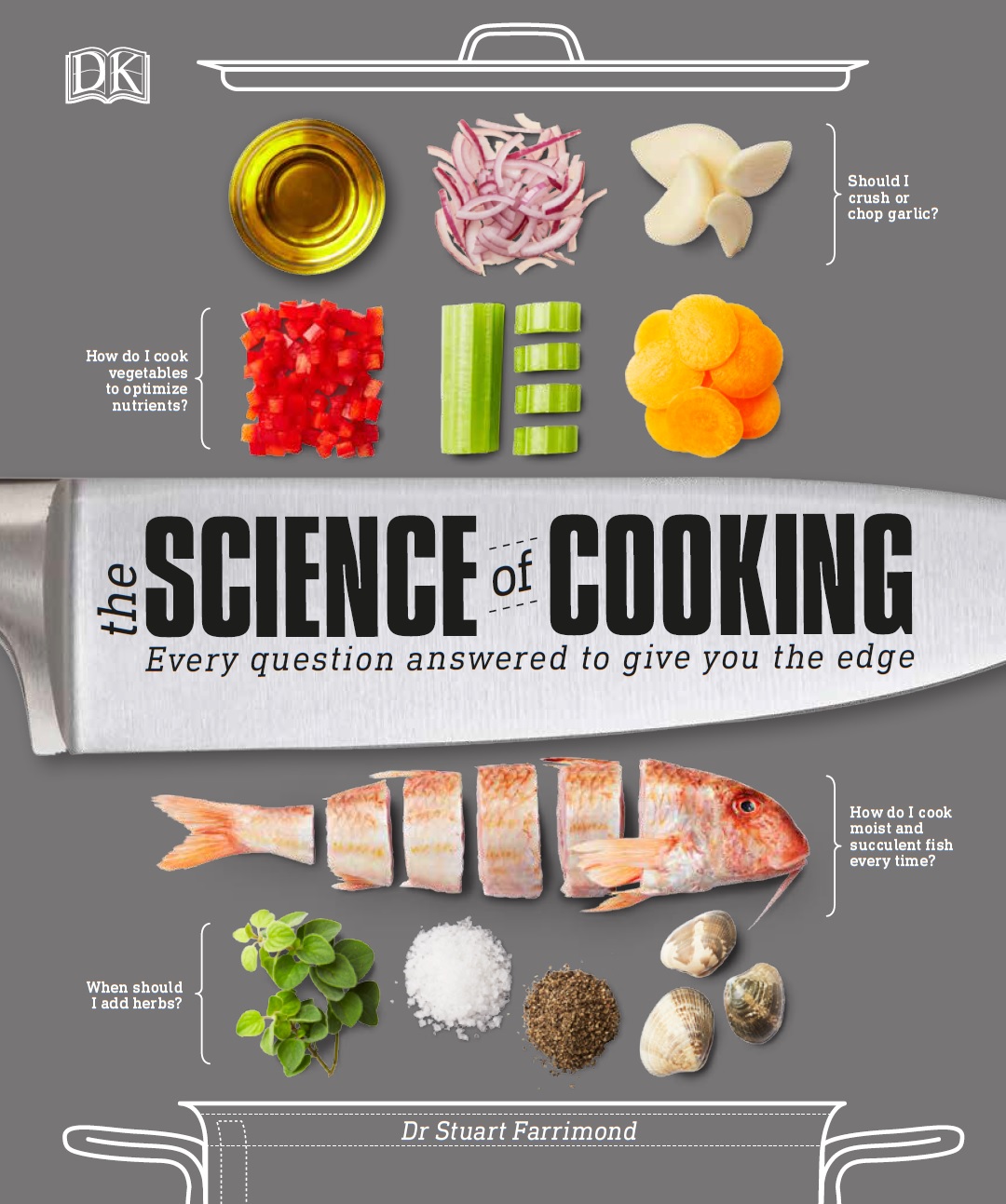








For a different view, you may want to have a look at
Mattes RD, Popkin BM. Nonnutritive sweetener consumption in humans: effects on appetite and food intake and their putative mechanisms. American Journal of Clinical Nutrition, Vol. 89, No. 1, 1-14
http://www.ajcn.org/cgi/content/full/89/1/1
It is available for free in full.
Posted by evilcyber | September 13, 2010, 10:53 pmMany thanks!
The video on your blog: http://evilcyber.wordpress.com/2010/09/08/artificial-sweeteners-hunger-and-weight-gain/ is pretty interesting.
Posted by Stuart Farrimond | September 14, 2010, 5:24 amhey stu,
just saw a link from facebook - didn’t realise you had a blog. I’ve never read a blog, so you have the honour of being my first one! I liked the one on sweeteners. I can’t stand the things, or fake milk, butter or any of the other weird scientifically made food stuffs. My attitude- either eat the real stuff or don’t have it at all!
Hope you guys are all well,
L
Posted by lisa jewel | September 14, 2010, 9:42 amYour first paragraph was hilarious! I almost fall for that, I seriously read your intro but I wondered that it was going nowhere. I think that this is really educational, I asked Goose Creek Dental Services last month, they told me the same thing with this blog post. Your information is right on!
Posted by Ryan Donovan | September 7, 2012, 12:08 amWe are researching about aspartame but I cannot conclude that it worsens cancer because our group called dentist summerville aren’t finished with the study. But we are also curious about this product, can you provide more details about your friend’s research. I think we can help one another.
Posted by Mhina Fheam | September 20, 2012, 9:18 pmPhenylalanine is necessary for the neurotransmitter production in our brain. It also helps with anxiety and depression by synthesizing serotonin which calms the mind and makes us feel good. .*;’;
Posted by Antonio Contrera | October 4, 2012, 8:42 amProducts that are labeled zero calories are not that promising. It’s true. There are no calories in them but to make them taste as good as they are, substitutes are added. Artificial sweeteners that come with side effects are included in the ingredients. They have to be, to redeem the flavor. Otherwise, the products will end up too awful to be a delight.You’d think you’re in the right track with artificial sweeteners. With no calories, you can say goodbye to some extra pounds in your system. You feel as if you’re doing alright. Well, you’re not. Truth be told, if you intend on losing weight through these empty calories, you are kidding yourself. Not only do they not have any dieting advantage, they, also, puncture your body with other effects.
Posted by Karrie Mulcahey | February 10, 2013, 4:17 pm